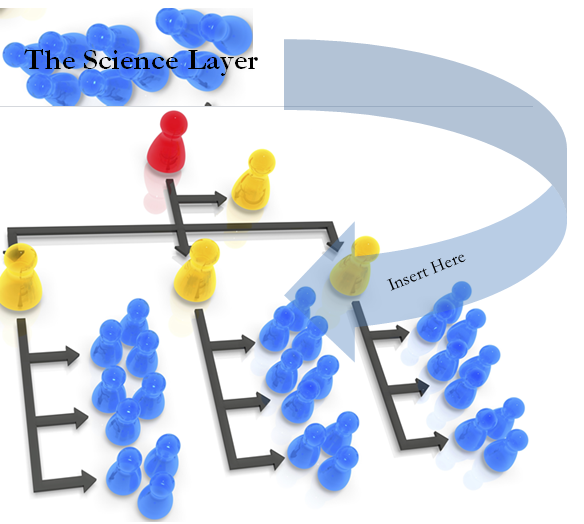I call the presence of number of scientists in an organization the “science layer”.
Quality scientists bring a unique culture to an organization that may not blend well with other employees, setting up an organizational “layer”. Good scientists are typically highly moved by data rather than persuasive eloquence or political power. Good scientists are well-trained skeptics, are not easily manipulated. Good scientists pursue the facts without bias then spread the facts around.
I have noticed in the past few decades that a science layer is forming in high-tech R&D organizations, in our government and even in the media. As a result of this layer I think that certain scientists and certain theories are beginning to enjoy an untouchable status.
Unlike what is happening in the government and media around science I think the presence of a significant number of scientist employees “a science layer” in companies and Universities is a healthy phenomenon. However, having this layer present in our organization offers unique challenges for leaders within these companies.
Below are 3 ways that the presence of a science layer can bring unique challenges to R&D/ Innovation teams.
- Scientists have a built-in decision analysis tool that many other employees do not, which is their ability to understand things from a fundamental scientific level in their chosen field, any leader who ignores (or doesn’t understand) what the science is saying around their R&D will not easily gain the confidence of his/her team. This is true regardless of how talented or well-trained the leader is. Sometimes the only type of leader a team of scientists will work with are older promoted scientists who easily speak their “language”.
- The majority of scientists are introverts, this helped them to get their credentials, it helps them to focus on study and to learn constantly. However introversion is not always conducive to healthy team dynamics and collaboration, silos can develop intentionally and internal competition is inevitable.
- Knowledge has a tendency to cause arrogance, knowledge “puffs people up”, a life-time of study, several decades of University education under academics and earning your living from your intellectual abilities causes many (not all) scientists to develop a stubborn superiority complex, making leading these employees challenging.
Creating healthy organizations which have a productive science layer can be challenging but not impossible. Science layers must be acknowledged, studied and led by the right people. The science layer creates unique cultural traits that should be studied and intentionally molded to maximize the effectiveness of this critical layer in our innovation organizations.
What are some other unique challenges of employing a “science layer”?


